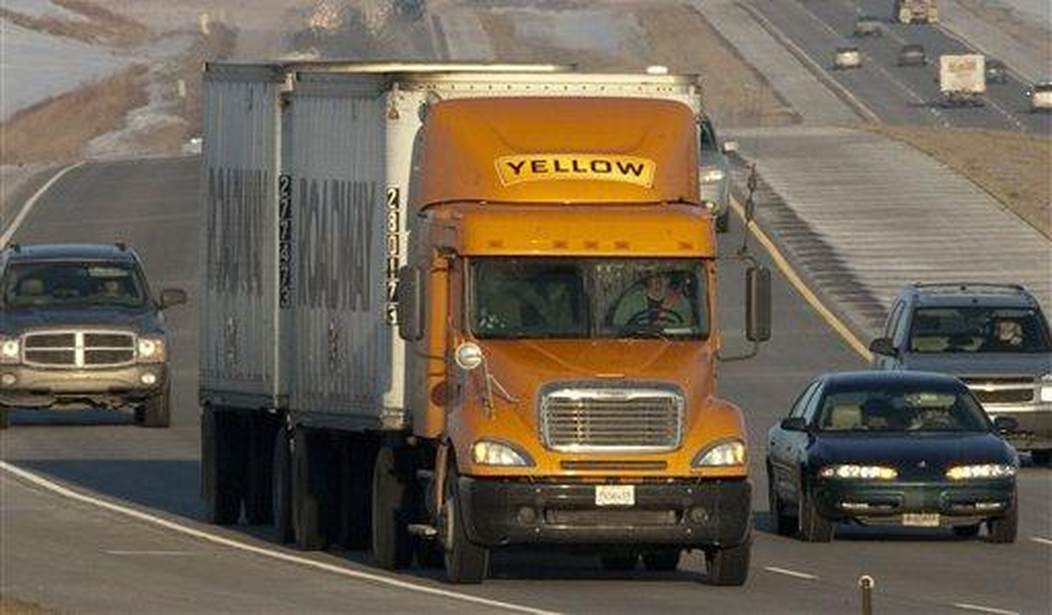On Friday, I shared a deep dive from my interview with Craig Fuller, a leader in the trucking and supply chain industries, about the fascinating concept of “Freedom Trade” — the notion of shifting our trade policy away from China and toward more nations who share similar values to ours.
Fuller, the founder and CEO of FreightWaves, a supply chain data media company, also talked with me about the state of the logistics sector in the midst of the supply chain crisis. I asked him how the industry was doing as the U.S. economy experiences maddening inflation and supply woes.
For his answer, he explained how the government’s injection of money into the economy lifted the industry in the early days of the COVID-19 pandemic.
“The logistics sector benefited from a massive amount of freight due to government stimulus and consumption,” he told me. “Outside of govermnent stimulus, people have returned to a normal version of life.”
He pointed out that, now that Americans are traveling and getting out into the world more than they did in early 2020, they’re using money on items other than physical goods.
“We’re faced with the reality that expansion is a thing of the past,” Fuller said. “There’s a contraction in logistics demand, which is worrisome. The freight recession has broader implications for our economy.”
Related: How Would U.S. Trade Look If We Pivoted Away From China?
I asked Fuller how the industry is adjusting to an economic situation that seems to get worse by the day, and he told me that the logistics sector is constantly dealing with disruptions and labor challenges. He did reiterate that the supply chain is also resilient in the way survived COVID-19.
“I’d give the industry an A+ in behavior, but it expanded way too much,” he noted. “There’s too much inventory, too many warehouses.”
When I asked Fuller if he sees relief on the horizon, he said that the destruction of demand is making it harder for the industry to recover. Government policy isn’t helping either, he pointed out, especially when the administration engaged in what he called “ridiculous” posturing in trying to help the backlog at West Coast ports.
In the end, inflation and other economic woes put a strain on Americans’ pockets that will affect consumer spending.
“What does matter is supply and demand,” he said succinctly. “Right now, we have fewer goods and less buffer capacity to haul goods,” which will exacerbate the supply chain crisis, at least in the short term.
The biggest takeaway from my conversation with Fuller is that, even though times are bleak right now with little relief in sight, the logistics industry in the U.S. — like the American people — is resilient. Our supply chain will bounce back and get stronger, especially when we get the next pro-American president in office.










Join the conversation as a VIP Member